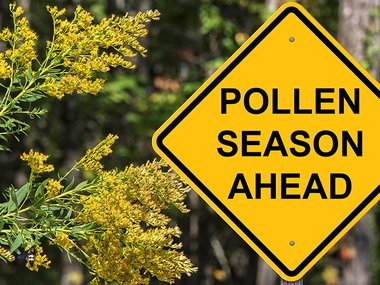Question Your World: Why Do We Itch?
We humans are prone to a lot of experiences. Sometimes we ask questions, sometimes we learn things, sometimes we itch. All three of these experiences are at the heart of today’s science story. So, why do we itch?
First of all, let’s get this disclaimer out there: there are many reasons to itch! You could have an allergic reaction, you could have a skin condition or your skin may be sensitive to pollution. And then sometimes you’ll just be laying in bed about to drift off into dreamland and all of a sudden the itch sneaks up on you. Sometimes our response in the form of scratches can be a quick, momentary occurrence while other times these itchy sensations can make us scratch so much we damage our skin!
A team of researchers recently set out to explore that particular style of itching, the kind associated with a common skin condition called eczema, and why it happens. Scientists observed the many ways an itch sensation can be felt.
Using a process of elimination, they were able to narrow down some of our itching sensations to a special enzyme made by a type of bacterium, Staphylococcus aureus. This is a common skin bacterium, nothing to be afraid of. In fact, we humans normally have trillions (yes, trillions) of microorganisms living with, on and in us at all times. Our bodies are home to about 38 trillion bacteria, outnumbering the amount of cells in our own body! Again, nothing to worry about. They serve lots of helpful purposes, like neutralizing toxins, breaking down food, boosting immune support and beyond. However, some of these bacterium can also create some other sensations along the way, like itchy skin!
For this research, scientists looked at Staphylococcus aureus, and got a closer look at that bacterium’s relationship with our body. Our skin has all kinds of receptors so we can feel things like heat, cold, textures and whatnot. These receptors will interact with everything around them and thus send signals to our brain should we need to react to a sensation.
In this study, through a process of elimination, the researchers observed that when Staphylococcus aureus releases an enzyme called V8, it activates a receptor in our skin called PAR1. PAR 1 then sends this information through our sensory nerves to the brain. The brain then sends information back through motor nerves, saying, “Hey! Scratch me over here already!"
Interestingly PAR1 also plays a role in blood clotting and has been studied by other scientists working on different research for an anti-blood clotting drug called Vorapaxar. That particular drug was already approved by the Food and Drug Administration to block PAR1 so they tried it on some itchy mice-subjects.
The results? The mice stopped itching.
Much more testing and research is needed to see if this drug could be used for humans with skin issues or severe itching problems that could damage their skin. This research also raises more questions like…why did this bacterium evolve to do this in the first place?
This and many more questions will be explored as the scientific process continues to shed more light on the relationship between the world and our bodies. In the meantime this report is helping us better understand a few variables involved in a very common human sensation. Stay tuned for more as scientists begin to scratch the surface on our itchy sensations!


